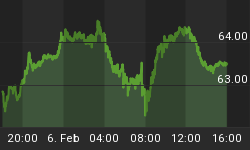According to Bear Stearns CEO, Alan Schwartz, his company went from being a stable and liquid enterprise to nearly insolvent in the span of 24-hours. What unexpected event arrived to shipwreck poor Bear? Market chatter of course:
"Bear Stearns has been the subject of a multitude of market rumors regarding our liquidity. We have tried to confront and dispel these rumors and parse fact from fiction. Nevertheless, amidst this market chatter, our liquidity position in the last 24 hours had significantly deteriorated." Bear Stearns PR
Obviously Mr. Schwartz is being disingenuous. After all, financially stable companies do not suddenly blow-up because a handful of investors are spreading erroneous rumors. Rather, by definition financially stable enterprises are those that are not slaves to their creditors and/or those that do not carry a market risk profile that can turn the company into road kill inside of 24-hours.
The reality is that Bear Stearns was carrying more than $28 billion in 'level 3' assets on its books at the end of fiscal 2007 versus a net equity position of only $11.7 billion. In other words, the company's balance sheet was highly leveraged to many untradable and potentially worthless assets. It is this pitiful balance sheet that had Bear in the fetal position, and when investor and lender confidence finally evaporated it was this balance sheet that forced Bear to call the New York Fed.
"The Board voted unanimously to approve the arrangement announced by JPMorgan Chase and Bear Stearns this morning." Federal Reserve Board Statement ~ JP Morgan Release
Before today's historic bailout of Bear Stearns, the Fed announced another new lending platform for $200 billion. This time around the Fed will take basically anything as collateral, which means potentially rotten debts will be held and perpetually rolled over by the Fed until things settle down.
Also this week, Standard and Poor's said the worst of the subprime write-downs are behind the markets. Not coincidentally, this declaration - which actually saw S&P's raise its earlier write-down estimate of $265 billion to $285 billion - came after the Fed announced its new lending scheme. Is it that difficult to contend that the pace of write-downs will slow when the Fed pledges to take $200 billion out of the equation?
Also this week, the SEC announced or said that they are planning new initiatives aimed at allowing manipulation of auction-rate securities, further manipulation of financial statements, and more freedom for hedge fund managers. While the word 'manipulation' is open to interpretation, it is safe to say that all of the SEC's time today is being spent trying to make life easier for the credit markets and corporate America. Who knows, maybe the SEC will try to get some of those ominous off balance sheet numbers back onto the balance sheet in the next decade?
Getting back to Bear, Mr. Schwartz concluded his statement with the following:
"We took this important step to restore confidence in us in the marketplace, strengthen our liquidity and allow us to continue normal operations."
As financial regulators leap to the aid of the markets and the rating agencies continue their shenanigans, Mr. Schwartz tells us of the one step a financial stable company would never be compelled to make.
Incidentally, the most pressing question at hand isn't what happens next, but whether or not Bear Stearns called the Fed or JP Morgan first...















